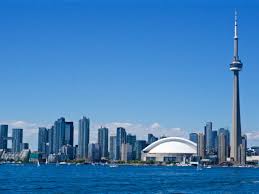We’ve already earned the nickname Hollywood North. But Toronto could be on the verge of becoming Silicon Valley North as well.
The technology industry in the Greater Toronto Area has grown by more than 50 per cent in the past five years, and there’s no sign of it slowing down any time soon, according to a new report from BMO Capital Markets. It’s a bit of good news amidst the headlines in Ontario’s slumping manufacturing sector, including the planned shutdown of GM’s plant in Oshawa.
The report, which is to be released publicly Tuesday morning, says there are roughly 241,000 tech industry jobs in the GTA, making this the fourth-largest tech hub in North America — and the fastest growing. And it’s no flash in the pan, says Doug Palmer, BMO’s regional vice-president of commercial banking.
“This is absolutely sustainable growth,” said Palmer, pointing to what he called “a critical mass” of talent, companies and research in the GTA and the Kitchener-Waterloo region, as well as a relatively healthy venture capital market, and support from government-supported hubs such as the MaRS Discovery District. “Toronto is a very attractive market.”
A loonie which hasn’t closed above 80 cents (U.S.) in five years has also helped draw companies to the Toronto area, added Palmer. But tech industry jobs aren’t as subject to the loonie’s rise and fall as jobs in the film and TV industry, where exchange rates are also a big driver.
“They decide movie by movie, or show by show. Tech companies which are starting or hiring here are making more long-term decisions,” Palmer said.
The annual Blue Book report, which looks at Canada’s economy as a whole, says growth in the tech industry will help Toronto drive the Ontario economy to grow at a 2 per cent clip in 2019. That’s lower than the 2.4 per cent the provincial economy grew in 2018, but higher than the 1.8 per cent growth BMO predicts the Canadian economy will experience this year.
A relatively open Canadian immigration policy has helped attract tech talent to the GTA that could have otherwise ended up in Silicon Valley, Seattle, or D.C., Palmer added. That’s increasingly been the case with Donald Trump stirring up anti-immigrant sentiment in the U.S., including his ban on immigration from several Muslim-majority countries.
“Our immigration policy has always helped, but it’s even more the case in the last three years,” Palmer said.
Toronto may have lost out in the race to become the home of Amazon’s second headquarters (a contest won by Washington, D.C. and Queen’s, N.Y., but Palmer believes that was something of a blessing in disguise.
“This is probably the best possible outcome. The race put us on the map, but if Amazon had actually come here, it would have vacuumed up a lot of the talent, and some of the entrepreneurial spirit,” said Palmer.
While the critical mass of talent, venture capital and education are some of the key drivers of the Toronto tech industry, one drawback is the high price of housing. A report on the Canadian tech industry last year from CBRE Research found that smaller cities were starting to close the gap.
“While major tech markets have privileged access to capital, resources and labour, smaller neighbouring markets are beginning to benefit from proximity and affordability,” the report said.
Source: thestar.com
Author: Josh Rubin
